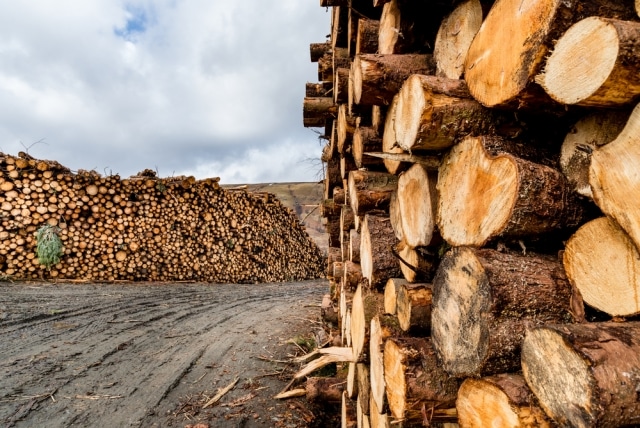The science is fairly convoluted but also entirely clear: Bioenergy — burning wood and other forest biomass as a fuel source — produces more carbon emissions than coal.
Even if all the forests we fed into power plants were to one day regrow, in theory sucking all that carbon back out of the Earth’s atmosphere, it would be far too late to be any kind of solution to the global climate crisis.
Yet 21 members of Congress recently wrote a letter urging the US Environmental Protection Agency to “take action to remove regulatory ambiguities in the treatment of utility-scale biomass power as a renewable resource.”
Why would they do that, when scientists insist that if we’re to keep global warming below the 2-degree-Celsius threshold, biomass cannot play a significant role in how we generate electricity?
Bob Cleaves, president and CEO of Biomass Power Association, can explain that to you: “Each of the signers recognizes the significant role that biomass plays in his or her district, and the urgent need to preserve the industry.”
Cleaves is clear that by “preserving the industry” he means influencing how carbon emissions from bioenergy are accounted for in the Obama administration’s Clean Power Plan, the final draft of which the EPA is expected to release in August.
In a statement, Cleaves boasted that, “This letter continues the momentum needed to ensure that biomass receives fair treatment in the Clean Power Plan and other regulations.”
Biomass: The cure for US coal plant closures?
The biomass industry has big plans for expanding the US market by touting its product as a way to keep “aging coal plant assets” operating under EPA’s Clean Power Plan.
So far, the EPA has shown signs that it might be leaning toward playing along. When the agency released a draft emissions accounting framework last November, it was accompanied by a memo proposing to exempt whole classes of biomass fuels from regulation.
In an interesting and somewhat surprising move, however, the Obama Administration came out strongly against treating biomass as a “categorically ‘carbon-neutral’” fuel source in a Statement of Policy released at the end of June. The statement was a response to H.R. 2822, an appropriations bill for the EPA and the Department of the Interior floated by Republicans in the House Appropriations Committee.
The bill would instruct the EPA to “base agency policies and actions regarding air emissions from forest biomass… on the principle that forest biomass emissions do not increase overall carbon dioxide accumulations in the atmosphere when USDA Forest Inventory and Analysis data show that forest carbon stocks in the U.S. are stable or increasing on a national scale, or when forest biomass is derived from mill residuals, harvest residuals or forest management activities.”
In other words, as long as more forests are growing in the US than are being cut down, or the biomass being burned is actually just waste anyway, it should be accounted for as a zero-carbon fuel source. A bill with similar language has been drafted by Senator Angus King, an independent from Maine, one of the biggest bioenergy-producing states in the US.
“This language stands in contradiction to a wide-ranging consensus on policies and best available science from EPA’s own independent Science Advisory Board, numerous technical studies, many States, and various other stakeholders,” the Administration’s statement said, explaining why the President would veto H.R. 2822 if it were to pass.
Dr. Mary Booth, director of the Partnership for Policy Integrity, has run the numbers on bioenergy, and she told DeSmog that regulating biomass as carbon neutral is like passing a law banishing climate change. But she seems cautiously optimistic about how the Obama Administration will ultimately come down on the issue, following the statement.
“Lawmakers who support this approach either don’t care that burning wood in power plants increases carbon emissions and simply want to promote the biomass industry’s profits, or they’ve bought into the biomass industry’s magical thinking that burning biomass doesn’t emit C02,” Booth told DeSmog.
“It’s a relief to see the Administration hold fast on the need for science-based greenhouse gas accounting from bioenergy.”
Image Credit: Cornfield / Shutterstock.com
Subscribe to our newsletter
Stay up to date with DeSmog news and alerts






